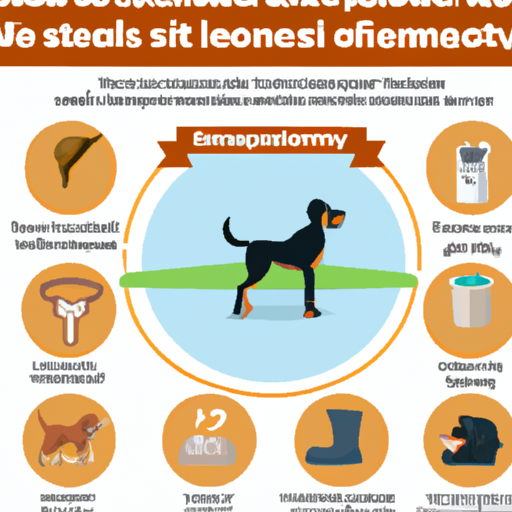Unsettling as it may be, your loyal companion’s loose stool is a clear sign that something isn’t quite right. Understanding what causes this distressing situation can help you intervene swiftly and effectively. Let’s dive into the world of canine health and discover the reasons behind your pet’s discomfort.
Understanding What Loose Stool Is
Loose stool, or diarrhea in dogs, is more than just an inconvenience. It’s a symptom that something is amiss in your pet’s digestive system. Typically, it presents as unusually loose or liquid bowel movements. You may notice these changes in your pet’s stool:
- Unusual color (black, green, yellow, etc.)
- Presence of blood or mucus
- Unusual smell
- Increased volume or frequency
While an occasional loose stool can be normal, persistent or severe diarrhea is a matter of concern and requires immediate attention.
Common Causes of Loose Stool in Dogs
Many reasons can cause loose stool in dogs. It’s essential to consider the many possibilities to ensure your pet gets the right treatment. Here are the five most common causes:
- Dietary indiscretion: Dogs are curious creatures. They can sometimes eat things that their stomachs can’t handle, leading to diarrhea.
- Food allergies or intolerances: Just like humans, dogs can be allergic or intolerant to certain foods, causing upset stomach and loose stool.
- Parasites: Internal parasites like worms can disrupt the digestive system, leading to loose stool.
- Infections: Bacterial, viral, or fungal infections can cause diarrhea.
- Stress: Yes, dogs can get stressed too! Changes in their environment or routine can lead to loose stool.
| Cause | Symptoms | Treatment |
|---|---|---|
| Dietary indiscretion | Vomiting, loss of appetite | Dietary changes, hydration |
| Food allergies or intolerances | Itching, skin rashes | Allergy testing, dietary changes |
| Parasites | Weight loss, dull coat | Deworming medication |
| Infections | Fever, lethargy | Antibiotics, hydration |
| Stress | Behavioural changes | Environmental adjustments, pheromone therapy |
When to Seek Veterinary Care
When in doubt, always consult with a veterinarian. If your pet’s loose stool persists for more than a day or two, or if it’s accompanied by other worrying symptoms such as vomiting, loss of appetite, or lethargy, it’s time to seek professional help. Quick intervention can prevent dehydration, weight loss, and other serious health complications.
Preventing Loose Stool in Dogs
Prevention is always better than cure, especially when it comes to your pet’s health. By taking some simple steps, you can reduce the risk of your dog developing loose stool:
- Regularly deworm your dog
- Keep your dog’s vaccinations up-to-date
- Feed your dog a balanced, high-quality diet
- Avoid sudden changes in diet
- Keep your home and yard clean to prevent infections
FAQ
What should I feed my dog with loose stool?
A bland diet consisting of boiled chicken and rice can help soothe your dog’s stomach. Always consult with your vet first.
Can I give my dog Imodium for loose stool?
Imodium can be used for dogs in certain situations, but always consult with a vet before giving your dog any medication.
How long does loose stool last in dogs?
Loose stool can last anywhere from a few hours to several days. If it persists for more than two days, consult your vet.
Can stress cause loose stool in dogs?
Yes, stress can cause loose stool in dogs. Changes in their environment or routine can lead to digestive upsets.
Is pumpkin good for dogs with loose stool?
Yes, pumpkin is high in fiber and can help regulate your dog’s bowel movements. However, it’s best to consult with your vet before introducing new foods to your dog’s diet.



